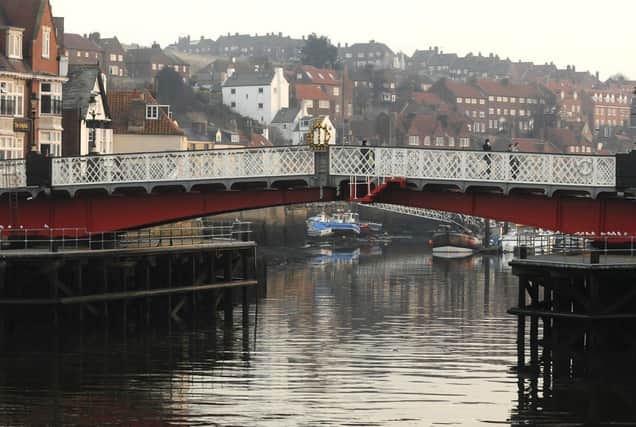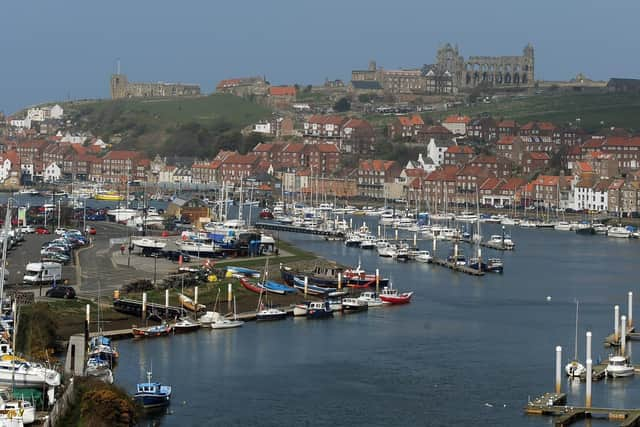The Great British holiday: a go-nowhere break from nothing – David Behrens


For the avoidance of doubt, this is the same as my regular house. It’s also my workplace, entertainment hub and the extent of my social life.
Normally, I would have made a beeline for Whitby, which I’ve always considered one of the nicest towns in England. The council, however, made it clear that neither I nor anyone else was welcome, the relaxation of travel rules notwithstanding.
Advertisement
Hide AdAdvertisement
Hide AdIt was a well-intentioned message, obviously, but I wonder how it went down with the many tourism businesses for whom no visitors means no income. It will be a bleak bank holiday weekend for them.


I toyed briefly with driving to Shropshire instead, to visit Ludlow, another on my list of England’s most attractive towns. The council there acknowledged this week that many of its traders were “at the edge of existence” and abandoned, for the time being, a plan to charge them for putting advertising boards on the street.
Nevertheless, everything there is cancelled, too, and a 300-mile round trip to walk the empty streets and eat sandwiches from home, before getting in the car and driving back there, would have been beyond futile. The same is true of every other destination.
Visitors are needed desperately yet at the same time they are uncatered for and unwelcome. It is the paradox at the heart of the Great British holiday this year, a go-nowhere break from nothing, in which we need send no postcards to our neighbours wishing they were here, because they already are. Not since the old wakes weeks, when everyone decamped to Butlin’s in Filey and Skegness, has our leisure time been so uniform.
Advertisement
Hide AdAdvertisement
Hide AdHow long this will last remains to be seen, but there seems little chance of the late summer mini-boom on which the tourism trade had been banking. Indeed, the mixed messages emanating from some areas will require a charm offensive from the industry to dispel.
Prospective visitors will need to be convinced that it is safe for them to return: safe from the virus and safe from the risk of encountering bulls and barbed wire along public rights of way. This latest phenomenon, raised by correspondents to this newspaper, sits uneasily with the need to bring in 40,000 outsiders to help harvest fruit and vegetables in a few months’ time.
The national tourism agency, Visit Britain, is on the right track by mooting an extra bank holiday in October, to coincide with autumn half-term and to mitigate slightly the £37bn the industry will lose this year. No less important would be the effect on national morale.
My own spirit sank somewhat this week when I learned how much better things are in Berlin, where my stepson lives and where I had originally planned to spend the spring break. Quarantine has ended there. It had never been officially enforced; just advised, but treated as holy writ by an obedient population – a national characteristic that explains much.
Advertisement
Hide AdAdvertisement
Hide AdThere were reports of an anti-lockdown protest being broken up by police last month, but my stepson’s take on the German mood was very different. Life was returning to normal, he said: shops were open, restaurants were serving meals al fresco and football had restarted, albeit in empty stadia. Even some of the nightclubs were open again, having put in place social distancing measures that rather defeated their purpose.
His experience there has also shown our own NHS in a different context. He had been worried when he moved abroad about the prohibitive cost of health insurance, having grown up believing that free medical care was a uniquely British innovation. As it is, he pays no more per month than his National Insurance stamp would have cost back home, and he can access a GP immediately, not two weeks on Thursday, should he need to. Had he gone to university there, he’d have paid less than £600 a year all in, compared to our £9,200 for tuition alone.
Perhaps it’s a blessing I didn’t get there; I might not have come back.
As it is, I have done as much as possible to recreate Whitby in and around Chateau Behrens. I’ve walked along a riverbank and tried to imagine a harbour at the end, dodged a seagull (it might have been a pigeon; I didn’t have my glasses on) and eaten fish and chips from one of the takeaways still serving them. It may not have been Butlin’s but it was still better than working.
Advertisement
Hide AdAdvertisement
Hide AdEditor’s note: first and foremost - and rarely have I written down these words with more sincerity - I hope this finds you well.
Almost certainly you are here because you value the quality and the integrity of the journalism produced by The Yorkshire Post’s journalists - almost all of which live alongside you in Yorkshire, spending the wages they earn with Yorkshire businesses - who last year took this title to the industry watchdog’s Most Trusted Newspaper in Britain accolade.
And that is why I must make an urgent request of you: as advertising revenue declines, your support becomes evermore crucial to the maintenance of the journalistic standards expected of The Yorkshire Post. If you can, safely, please buy a paper or take up a subscription. We want to continue to make you proud of Yorkshire’s National Newspaper but we are going to need your help.
Postal subscription copies can be ordered by calling 0330 4030066 or by emailing [email protected]. Vouchers, to be exchanged at retail sales outlets - our newsagents need you, too - can be subscribed to by contacting subscriptions on 0330 1235950 or by visiting www.localsubsplus.co.uk where you should select The Yorkshire Post from the list of titles available.
Advertisement
Hide AdAdvertisement
Hide AdIf you want to help right now, download our tablet app from the App / Play Stores. Every contribution you make helps to provide this county with the best regional journalism in the country.
Sincerely. Thank you.
James Mitchinson
Comment Guidelines
National World encourages reader discussion on our stories. User feedback, insights and back-and-forth exchanges add a rich layer of context to reporting. Please review our Community Guidelines before commenting.